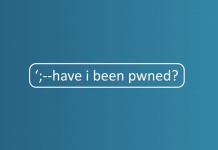

Black Friday is upon us. Yes, it’s time once again for intrepid American consumers to hit the stores like there’s no tomorrow — nudging hundreds of thousands of retailers into the black and ourselves into the red, only to spend the balance of the year clawing our way back to some semblance of solvency.
But this year, things are different. While visions of sugarplums may dance in our heads, we have butterflies fluttering in our stomachs. Why? Because the dreaded fiscal cliff — which got short shrift from the candidates during the final months of The Campaign That Wouldn’t Die — has burst back into our collective consciousness with a vengeance, splashed across every front page, TV and computer screen in the land. With zero hours less than 45 days away, just one thing stands between us and a double-dip recession: the United States Congress.
Feeling lucky? Not me. Stanford upset Oregon this weekend, that’s about it for my luck this year.
Nevertheless, many people are. Cliff or no cliff, consumers are more confident. Credit card use is up — as are late payments. And while the numbers aren’t huge, they are significant — and testify to a more optimistic public. In the quarter from July to September, the average credit card debt per U.S. borrower increased by 4.9 percent over the same period one year ago; this corresponds to a rise in consumer confidence as hiring improved steadily over the same period — with an additional 171,000 jobs added in October. Banks are putting more credit cards into customers’ hands, and the percentage of late payments has been inching upward — two more signs that our post-crash caution is beginning to slightly wane. Is that a good thing? That depends: cliff or no cliff?
It’s a question plenty of people prefer to avoid. The better to avoid it, they are doing what people do so easily and so willingly — and what Congress, shamefully, has turned into a signature move: Kick the IED down the road for another day. This “Please say it ain’t so, Joe” approach is especially attractive in this context, since no one is really sure just what will happen if Congress does send us tumbling into the fiscal abyss.
What we know for sure is that if it does happen, it’s going to hurt. The fiscal cliff has several components, starting with the scheduled sequestration of $1.2 trillion, to be cut equally from defense and non-defense spending over about a decade. That would surely hurt the economy and wound individual consumers by triggering both layoffs and cuts to key elements of the safety net. (Despite what you’ve heard, government does indeed create jobs — and, as we may soon observe, congressional inaction can certainly destroy them.) All this could reduce GDP growth by .5 percent or more, according to the Congressional Budget Office; it would slam Texas, Virginia and California especially hard, but many others would be affected as well.
There’s more. The expiration of the Bush tax cuts would boost rates for everyone (not just the $250,000-plus crowd), the 10 percent tax bracket would vanish, the 35 percent tax bracket would jump to 39.6 percent, and some deduction limits would return. Capital gains and “qualified” dividend tax-rates would increase. The Social Security payroll tax reduction would expire, sending the rate from 4.2 percent to 6.2 percent, and up to 30 million tax filers would find the dreaded Alternative Minimum Tax was back in their lives. And that’s not all. We could be facing a Sandy-like perfect storm — one that would send the economy into the second trough of a double-dip recession for the new year — which, among other things, could well mean the difference between having a job and not having one.
Now, there are things folks can’t control, and storms are among them. What we can do is prepare. As Frankenstorm approached the East Coast, we all saw it coming, but we didn’t really see it coming. Deep down, few of us believed it would be that bad. Some folks prepared; others really didn’t. But prepared or not, many naively counted on a Divine intervention with limited damage and no fatalities. Man plans. God laughs. We’re still tallying the losses.
The fiscal cliff is no different. But Grand Canyon or a molehill — no one really knows. Based on the recent history of Congress, though, I’d say gridlock and chaos is more likely than calm and compromise. The sky may be brightening, but that’s no reason to ignore the weather report — and in the case of Congress, the forecast is “clueless with a chance of catastrophe.”
If you agree that, here as elsewhere, Congress is likely to live up to its excruciatingly low approval ratings, you may also agree that your best choice as you eye the approaching storm is to celebrate the holidays with a big dose of financial literacy and restraint. Hope for the best but prepare for the worst.
The good news is that you can seize this opportunity to empower yourself and strengthen your financial and credit position — no matter what our friends in Congress decide to do. While the credit world is still far from being paradise, consumers do have access to powerful tools that increase individual leverage and add to personal insight, while curbing at least some of the banks’ worst excesses. And as I’ve written so many times before, we must prioritize financial literacy so consumers can take control of our financial lives and get the target off our backs — whether it’s put there by mortgage brokers, mega-banks or identity thieves.
Your credit profile is either a carefully planned project, or something that happens to you. If you take the initiative to understand, shape and protect your credit portfolio, your credit report can serve as a resume, not a rap sheet. I mean that literally. In additional to all of the other things impacted by your report and scores, prospective employers in the overwhelming majority of states, are using an applicant’s credit report (but not scores) as a guidepost, not just of competence as a personal financial manager, but of personal awareness and ability to manage one’s life in a conscious and proactive way. If a job applicant hasn’t demonstrated awareness of, or done what is necessary to build and protect, his or her credit portfolio, why should an employer expect better?
Legislation can provide an indispensable framework to help protect consumers from exploitation, but that is hardly enough. The ultimate guardian of the consumer is the consumer. That means individual consumers, even in the best of times, must take responsibility for the evolution of their history. This means getting inaccurate information removed; understanding and explaining in a compelling fashion what went wrong and why, as well as what steps are being taken to rectify accurate negative information; and, correcting what’s less than stellar in their conduct (paying down debt, making payments on time and exercising spending restraint where appropriate).
Even if such restraint runs counter to the spirit of the season, you must do whatever you can to strengthen your credit portfolio, thereby enhancing your ability to ride out any storm that might strike.
Better yet, here’s your chance to prove that you can manage your life better than Congress can.
This article originally appeared on Credit.com. Follow them on Facebook and Twitter.









